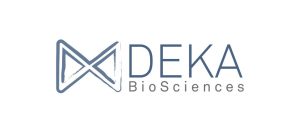 Germantown, MD — Deka Biosciences, a clinical-stage biotechnology company developing next-generation cytokine therapies for cancer and inflammatory disease, announced the publication of a peer-reviewed manuscript in Cell Reports Medicine highlighting the unique mechanism of action behind its lead Diakine™ oncology asset, DK210 (EGFR).
Germantown, MD — Deka Biosciences, a clinical-stage biotechnology company developing next-generation cytokine therapies for cancer and inflammatory disease, announced the publication of a peer-reviewed manuscript in Cell Reports Medicine highlighting the unique mechanism of action behind its lead Diakine™ oncology asset, DK210 (EGFR).
This newly published research reveals how DK210 (EGFR), a tri-specific fusion protein, delivers potent anti-tumor activity with a favorable safety profile. With dose-finding studies in patients now complete, Deka is actively seeking combination partners to explore therapeutic synergies with T cell engagers (TCEs).
Key Mechanistic Highlights:
- Tumor Targeting: DK210 (EGFR) binds EGFR to localize and retain activity at the tumor site.
- Cytokine Balancing: The fusion of IL-10 with IL-2 reduces inflammation-driven toxicities, such as cytokine release syndrome (CRS) and edema.
- Immune Activation and Persistence: DK210 (EGFR) uncouples toxicity from immune activation, enabling persistent CD8+ T cell secretion of IFNγ, Granzyme B, and Perforin – critical elements of sustained anti-tumor response.
The full manuscript is available in Cell Reports Medicine, and a detailed overview of the mechanism, including visual data summaries, can be accessed at dekabiosciences.com/moa.
